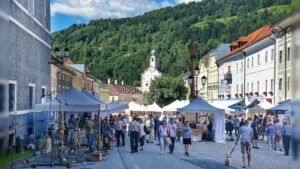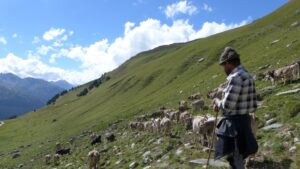Abstract/Description
This research paper examines the intricate relationship between tourism and agriculture within the unique context of Leh, a high-altitude region in the Union Territory of Ladakh. Leh’s harsh cold desert climate, limited vegetation, and short agricultural season present considerable challenges to sustaining its food systems. Despite these adversities, agriculture remains a crucial component of Leh’s economy, with key crops including wheat, barley, apples, apricots, and sea buckthorn. The region’s emergence as a prominent tourist destination has led to significant infrastructural transformations that have had profound implications for local agriculture and food systems. This study seeks to analyze the complexities of these transformations and the interdependencies between tourism and agriculture in Leh. The research employs both secondary data from government reports and primary data collected through household surveys, interviews, and focus group discussions conducted in May–June 2022 and September 2022. A preliminary stakeholder mapping exercise identified various key actors in the tourism and agriculture sectors, including tour operators, restaurant owners, hotel managers, homestay operators, and local farmers. The study’s findings reveal that tourism exerts both positive and negative influences on the region’s agricultural and food systems. While the tourism industry has generated alternative income sources and expanded market opportunities for local produce, it has also intensified pressure on land and water resources, necessitating a careful balance to ensure sustainable development. This paper contributes to the broader discourse on sustainable tourism and agricultural practices in mountainous regions, underscoring the need for integrated policy frameworks that harmonize tourism growth with sustainable agricultural development.


